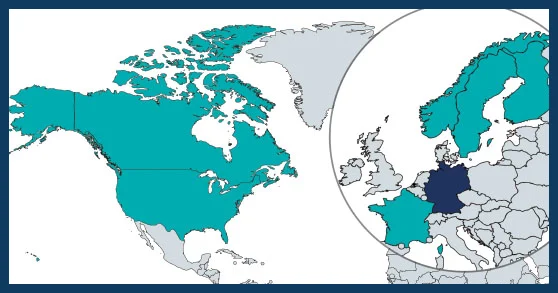12-2018 to 04-2022
€ 1,737,830
Laura Epp
laura.epp@uni-konstanz.de
University of Konstanz, GERMANY & Alfred Wegener Institute, Helmholtz Centre for Polar and Marine Research, Potsdam, GERMANY
Tromsø Museum, UiT – The Arctic University of Norway, NORWAY
Umeå University, SWEDEN
UNESCO, Paris, FRANCE
Université Paris Sud, Orsay, FRANCE
University of Lapland, Rovaniemi, FINLAND
University of Alberta, Edmonton, CANADA University of California, Santa Cruz, USA

The Arctic is currently experiencing dramatic ecosystem changes due to climate warming and increased anthropogenic pressure, influencing biodiversity and ecosystem services. Understanding the relative impacts of climate, herbivory and human management on ecosystems, is of paramount importance for their long-term sustainability as well as for the well-being of communities across the circumpolar North. Well-informed ecosystem management and species conservation are how- ever precluded by the scarcity of long-term (millennia) data sets spanning ancient and contemporary climatic and land use events. FATE will therefore conduct a comprehensive inter- and trans-disciplinary study using sedimentary ancient DNA, current ecological observations and anthropological investigations of indigenous peoples’ knowledge and interpretations.
1.Determine local biodiversity changes and vegetation shifts over large spatial (circumarctic) and temporal (Last Glacial Maximum until today) scale;
2.Identify drivers of recent and historic biodiversity changes and integrate them in climatic niche models to forecast future biodiversity changes;
3.Chronicle indigenous and local knowledge (ILK) of biodiversity changes and their drivers;
4.Build exploratory and predictive scenarios to link potential ecosystem shifts to changes in biodiversity and ecosystem services relevant for local communities in the Arctic.
1. Retrieve and identify ancient DNA of plants, mammals and fungi at a high temporal resolution from sediment cores from across the Arctic;
2.Integrate data from local long-term ecological experiments that have been running for the last decades with the molecular genetic paleo-data;
3.Carry out anthropological field studies in four different communities in Northern Siberia and Northern Europe;
4.Build scenarios based on the outcomes of 1-3 in an iterative process with local stakeholders.
The project integrates the knowledge and needs of local communities and stakeholders from the start, as it will generate the outcomes and build the scenarios in an iterative and collaborative manner. Results will be communicated directly to participating communities, both through the work and through popular publications in the local languages, as well as to local decision-making bodies in the Arctic. A wider audience will be addressed in a series of workshops and public conferences, with the final project conference organised around the Jokkmokk Winter Market in 2022 as a public event.